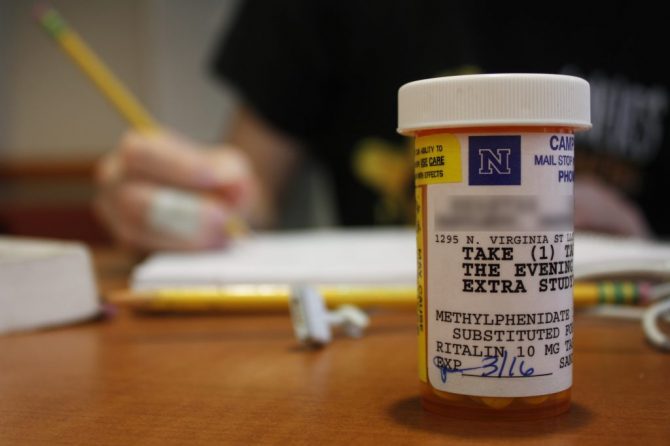
A recent review shows the benefits of treating ADHD with medication
According to a text published in the Journal of Adolescent Health, medication provides significant protective benefits
Some parents are reluctant to give their children powerful stimulants to treat the symptoms of Attention Deficit Hyperactivity Disorder (ADHD), but a new review, published in the Journal of Adolescent Health, shows that medications provide significant benefits.
In addition to helping children to calm down and to concentrate at school, the review found that the medicines also help young people to avoid the negative consequences associated with ADHD in the long term, including depression, substance abuse and surprisingly, even problems while driving.
“Treating ADHD with medication can help children to avoid some of the serious complications associated with the disorder,” said study author Joseph Biederman, head of clinical programs and research in psychopharmacology, paediatrics and ADHD in adults at the Massachusetts General Hospital in Boston (United States).
Less risk
Specifically, the study suggested that the early use of stimulant medications for ADHD was linked with a lower risk of major depression, anxiety, behavioural disorder, bipolar disorder, smoking, substance abuse, problems with driving and low school performance.
Although the current study cannot prove a definite causal relationship, Alan Geller, psychiatrist at Gracie Square Hospital in New York City, who treats children and adolescents, has assured that it makes sense that treating the symptoms of ADHD can help prevent other associated problems.
“A hyperactive child that disrupts and disturbs the class is annoying. They finally will become marginalised, this can lead to more behavioural problems, including substance abuse and even to anxiety and depression”. Explained Geller.
Difficulties in personal life
Geller assures that adults with ADHD may have problems at work as well as difficulties in their personal lives.
“It can start as early as seven or eight years old, when they cannot seem to find their way in life as other children do. They end up feeling alone. It is a major problem when left untreated,” he said.
But according to Geller, this research shows that if a child is treated with medication to help control their ADHD symptoms, there is less risk of marginalization or the seeking out of stimulation through other, risky activities, such as reckless driving or smoking.
Geller says the findings suggest that the protective benefits of pharmacological treatment for ADHD outweigh its risks. Adverse effects of ADHD medication include delayed growth, suppression of appetite and a potential risk of addiction.
Three studies
The review included three recent studies. Two were long-term studies of children with and without ADHD. Some of the children diagnosed with ADHD were treated with stimulant medications, while others were not. The average age of children was 11 years old at the start of the study. They had a follow up when they were 20 years old. The third study looked at young adults (18 to 26 years) with the disorder.
The researchers evaluated the performance of participants in a driving simulator before they began to take stimulant medication, and again six weeks after the start of the treatment.
The researchers estimated the number of people that would have to be treated with medications to observe a benefit. They found that three people would have to be treated with ADHD medication to prevent a child to repeat a course or develop anxiety, a behavioural disorder or oppositional defiant disorder; four people would have to be treated to prevent a person developing major depression or an accident during driving simulation; five people would need treatment to prevent bipolar disorder; six people would have to be treated to prevent a person smoked cigarettes; and 10 people would have to be treated to prevent Substance abuse disorder in a person.
Researchers are planning a future research to see if treating ADHD with medication can help reduce post-traumatic stress disorder, traumatic brain injury and suicide. Biederman also added that in the future they plan to study whether the treatment of ADHD is linked to success at work.
Dr Biederman’s research is not without controversy and some have accused him of being on the payroll of pharmaceutical companies that push pharmacological ADHD treatment. See here for an article questioning the research in ADHD medication.
https://www.nytimes.com/2013/12/15/health/the-selling-of-attention-deficit-disorder.html
If you feel that you would like to talk to a psychologist, psychiatrist or physician about yourself or a child, then you can find one in the ESHA Spain business directory of English-speaking healthcare professionals in Spain.
Leave a reply






I thought it was interesting that studies suggested that early use of medication to treat ADHD can help lower major depression, anxiety, and other problems. My daughter was diagnosed with ADHD and we’ve been worried about when to start treatments for it. Maybe we should see what her doctor thinks about getting her ADHD treatment.
ReplyThis piece of research certainly suggests that early pharmacological intervention can mediate chronic depressive episodes. Always worth seeking out the advice of your local GP and who knows the specific needs of your daughter
ReplyIt is great that this post assured us that therapy is a great alternative to ADHD. My nephew was diagnosed with ADHD recently and my sister is planning to not pursue medication. I think I will encourage her to consider therapy.
Reply